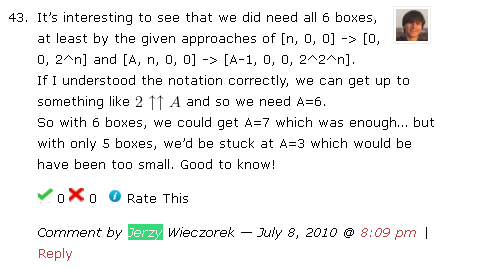I’ve not been keeping up with blogging this semester, but I had to share this beautiful spam comment my filter let through this morning:
Appreciation for the excellent writeup. This in reality was previously your fun profile it. Glimpse complex to help way presented reasonable on your part! On the other hand, the way could possibly we be in contact?
I can’t tell if it’s written by a non-native English speaker or by a Markov chain—does that mean it passes the Turing test? Either way, there’s something lovely about its broken grammar.
The author’s name was given as “buy inversion tables.” For a moment I thought this might be a real comment, by someone offering to compute large matrix inversions cheaply and quickly. But no, apparently inversion tables are these things where you strap yourself in, flip over, and hang upside down for as long as you can. Kind of like the first semester of a PhD program 🙂
PS—somehow the comment reminds me of when Cosma Shalizi’s students used Markov-chain generated text to fake a blog post for him, in a previous iteration of the Statistical Computing class (which I’m TA’ing this term).

